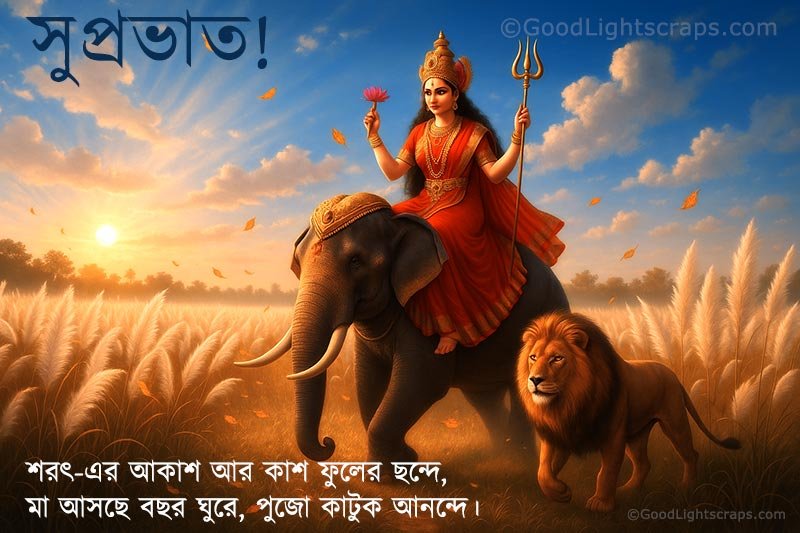Navratri is a time of devotion, where people come together to worship Goddess Durga in her various forms. The festival is filled with rituals, prayers, and celebrations. However, amidst all the devotion, one aspect is often overlooked—the divine vehicles, or ‘Vahana,’ of the gods and goddesses. If we truly respect and worship our deities, shouldn’t we also care for their chosen companions, the animals?
Understanding the Importance of Vahana
In Hindu mythology, every deity has a Vahana (vehicle) that holds deep symbolic meaning. Goddess Durga rides a lion or a tiger, symbolizing power and courage. Lord Shiva’s Nandi (bull) represents strength and devotion. Lord Vishnu's Garuda (eagle) signifies speed and protection. These animals are not just symbols; they are nature’s gift and a crucial part of our ecosystem.
The ancient scriptures did not mention Vahana just as a mythological reference; they were included intentionally to teach us the importance of coexisting with nature. If these divine creatures are associated with gods, doesn’t that mean they deserve our love and care?
Why Should We Care for Animals?
During Navratri, we offer food, flowers, and prayers to the goddess. But what about the animals that roam our streets, hungry and abandoned? Stray dogs, cats, cows, and even birds struggle to survive. Just as we clean and decorate temples, wouldn’t it be meaningful to also feed and care for these innocent beings? After all, kindness and compassion are core values in every religion.
Some might argue, “Should we also care for snakes and other wild creatures?” The answer is yes! Every animal has a role in nature. If a species is in danger, we must take steps to protect it. This doesn’t mean keeping wild animals as pets but ensuring their habitat remains safe and undisturbed. Many sanctuaries and organizations work towards rescuing and rehabilitating endangered animals, and supporting such efforts can be a form of service to the divine.
It is also important to understand that animals like snakes or scorpions do not bite or attack intentionally. They are simply programmed by nature to react in self-defense. They do not have the ability to think, justify, or judge—they act purely on instinct. But we, as humans, have been gifted with intelligence. We can think, we can analyze, and we can make conscious decisions. So, shouldn’t we use our intelligence wisely by treating all creatures with care and respect?
Small Acts That Make a Big Difference
Caring for animals doesn’t require grand gestures. Small acts of kindness can go a long way. Here are a few ways you can help:
Feed stray animals – A bowl of water and some food can save a life.
Adopt, don’t shop – Give a homeless pet a loving home.
Avoid harming animals – Even if you can’t help, ensure you don’t hurt them.
Support animal shelters – Donate food, money, or your time to organizations that rescue animals.
Spread awareness – Educate people on the importance of treating animals with kindness.
Worship Beyond Rituals
True devotion is not just about rituals and prayers; it is about embodying the values taught by our deities. If we celebrate Navratri with so much enthusiasm, let’s also extend our respect to the Vahana of the gods. By protecting and caring for animals, we are not only serving humanity but also preserving the balance of nature.
This Navratri, let’s take a pledge to be compassionate towards all living beings. The goddess will be truly pleased when we not only worship her but also take care of the world she has created.
Let kindness be our prayer and compassion our offering!
Also read: [Kumari Puja During Navratri – Significance and Rituals]

More Free Greetings, Image, Wishes
No comments:
Post a Comment